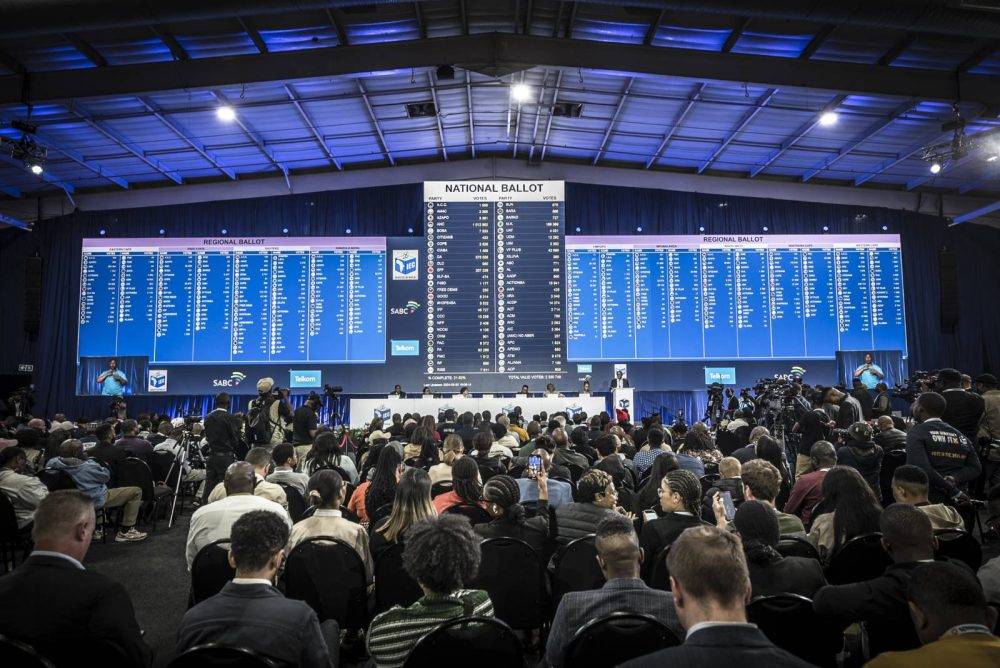
Scenes from the National Results Operations Centre in Midrand, Gauteng. Numerous political leaders, media and government officials are present to watch the results come in on 30 May 2024. (Delwyn Verasamy/M&G)
It has been a dramatic few weeks in South Africa. As the country moved fully into election campaign mode, the expected clutch of questions were thrown at me: “Why aren’t you doing more to get people to vote?”; “Are you worried about the election being free and fair?”; “Who do you think we should vote for?”; “What would Madiba do?” and so on. And now, as we absorb the results and ponder what it all means, I’m hearing a certain very familiar line of inquiry: “What would Madiba say?” It can get tiring, but we cannot avoid a key question: what do we make of the election and where the country is landing in its wake?
There is a view that a significant moment is reached in the journey of a young democracy when the former liberation movement, which has been in power for years, finally loses an election and hands over the reins. As always with South Africa, our narrative is not as simple as that. But arguably our country has come to an important juncture in its journey with democracy — the moment when, after three decades, the governing party must reckon with the reality that a majority of South African voters would prefer someone else to be in power. A sobering moment for an organisation that was the party of Nelson Mandela.
Top of mind for everyone at this moment has to be the question of whether coalition administration can work at the national level. The evidence is not good. Our political elites have consistently found ways to turn coalitions at local government level into something messy, at best, and disgraceful at worst. South Africa deserves better. We need coalition partners who are willing to put the national interest before party political agendas and who are committed to taking South Africa’s journey with democracy to the next level. We need leaders to show leadership. As Madiba used to say during his HIV/Aids campaigning when he found himself opposing the government — “leaders lead.”
Beyond the results of the election, this also feels like a moment to savour those things we can celebrate in this 30th year of democracy. It feels good to live in a country where, despite all the difficulties, we can still be confident that our elections are substantively free and fair. In 1994, Madiba’s priority when he became president was to make democracy stick. And it has. Our democratic processes and instruments have seen two sitting presidents removed from power. We have a vibrant — some would say boisterous — civil society. We have as free a press as anywhere in the world. Our judiciary — again, despite all the challenges — feels like a bulwark. Too often we South Africans give short shrift to good stories and to good reasons for celebration; we slip too quickly into complaint mode. I’m reminded of something else Madiba used to say to those of us who worked for him when things were going wrong — “it doesn’t help to whine; what’s the plan?”
There is reason to celebrate our democracy. But there is also reason to be concerned about its continuing failure to deliver fully on the promise of freedom. The Constitution is not a lived reality for most of those who call South Africa home. Too many things are still going wrong. It’s time for leaders with a plan. It’s time for leaders to lead.
Verne Harris is the acting chief executive of the Nelson Mandela Foundation.
 (1).png)
 7 months ago
62
7 months ago
62


















